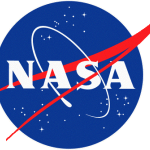- Industry: Aerospace
- Number of terms: 16933
- Number of blossaries: 2
- Company Profile:
The Executive Branch agency of the United States government, responsible for the nation's civilian space program and aeronautics and aerospace research.
A measurement of time defined by orbital motions. Equates to Mean Solar Time corrected for irregularities in Earth's motions. Obsolete, replaced by TT, Terrestrial Time.
Industry:Aerospace
A planet orbiting a star other than the Sun. See also Exoplanet.
Industry:Aerospace
UTC of an event at DSN receive-time, equal to SCET plus OWLT.
Industry:Aerospace
The equinoxes are times at which the center of the Sun is directly above the Earth's equator. The day and night would be of equal length at that time, if the Sun were a point and not a disc, and if there were no atmospheric refraction. Given the apparent disc of the Sun, and the Earth's atmospheric refraction, day and night actually become equal at a point within a few days of each equinox. The vernal equinox marks the beginning of spring in the northern hemisphere, and the autumnal equinox marks the beginning of autumn in the northern hemisphere.
Industry:Aerospace
An imaginary circle around a body which is everywhere equidistant from the poles, defining the boundary between the northern and southern hemispheres.
Industry:Aerospace
A closed plane curve generated in such a way that the sums of its distances from the two fixed points (the foci) is constant.
Industry:Aerospace
The plane in which Earth orbits the sun and in which solar and lunar eclipses occur.
Industry:Aerospace
The distance between the foci of an ellipse divided by the major axis.
Industry:Aerospace
